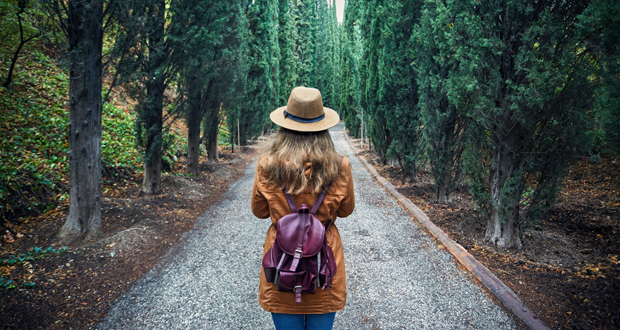To celebrate Earth Day on April 22, 2018, Booking.com has released the findings from its most recent global Sustainable Travel Report. Commissioned by Booking.com and independently conducted among a sample of adults who have taken a trip in the last 12 months or plan to take a trip in the next 12 months, the online survey asked 12,134 respondents across 12 countries about their travel habits. Of those surveyed, nearly 40 percent had stayed in eco-friendly accommodations at least once in 2017, and 87 percent of all travelers stated that they want to travel sustainably.
Despite the favorability of green travel among those surveyed, nearly half (48 percent) indicated that they never, rarely, or only sometimes manage to travel sustainably, suggesting room for improvement globally across the lodging industry when it comes to sustainable travel.
Sustainability Starts with Accommodations
‘Sustainable travel’ is a subjective term that has different connotations for different people. However, for almost half of travelers (46 percent), ‘sustainable travel’ means staying in eco-friendly or green accommodations, topping the list of what people think of when hearing the term. The top reasons travelers give for choosing these eco-friendly places to rest their heads are to help reduce environmental impact (40 percent), to have a locally relevant experience (34 percent), and wanting to feel good about an accommodation choice (33 percent).
Looking ahead, more than two-thirds (68 percent) of travelers intend to stay in an eco-accommodation in 2018—up from 65 percent in 2017 and 62 percent in 2016. Additionally, the percentage of travelers who have not considered eco-friendly stays because they were unaware of their existence continues to decline, resting at 31 percent this year, compared to 39 percent and 38 percent in 2017 and 2016 respectively.
Eco-Inspiration When Trip Planning
When it comes to what inspires people to travel more sustainably, it seems that travel itself is the biggest motivator. Six in ten travelers indicated that the impressive natural sights visited on past travels inspired them to travel more sustainably, while more than half (54 percent) said seeing the visible impact that tourism can have on destinations serves as their inspiration. Others reported seeing the positive effect that sustainable tourism can have on the local people (47 percent), seeing the unsustainable effects of tourism in their home country (42 percent), and feeling guilty about the impact their vacation had on the environment (32 percent) as motivation for wanting to travel sustainably.

Overcoming Barriers to Sustainable Travel
While perceived extra cost remains the top barrier for travelers wanting to travel more sustainably, 67 percent of travelers would be willing to spend at least 5 percent more on their travel to ensure it they have a low impact on the environment. Travelers from India, Brazil, and China were the most willing to pay more for sustainable travel—nearly one in three Indian travelers said that they would pay 15 percent or more, followed by Brazilian travelers (21 percent), and Chinese travelers (18 percent).
The research also indicates that a lack of information and a lack of credible certification poses a significant obstacle to sustainable travel to 32 percent of travelers, particularly those in India, China, and Japan where travelers cited this as even more of a barrier than the extra cost. Other barriers included perceived limits to travelers’ time (22 percent), destination choices (22 percent), and luxury and comfort (20 percent).
As sustainable travel intentions grow, travelers are still looking for ways to more easily fulfill these ambitions. Four in ten said that a sustainable or eco-friendly filter option when searching for accommodations online would help, while 32 percent continue to call for an international standard for identifying eco-friendly accommodations.
Green Activities on Vacation
Proving that sustainability measures don’t need to come at an inconvenience, many global travelers indicated they engage in sustainable travel behavior because the activity itself adds a positive vacation experience to their trip. Vacation activities that travelers said added to their enjoyment include buying locally made products instead of mass-produced tourist souvenirs (53 percent), being adventurous and using public transport instead of a taxi (52 percent), going out of the way to find a local restaurant that only uses local ingredients (41 percent), skipping tourist highlights in favor of less busy and often more rewarding sights (40 percent), and opting for a unique place to stay that is a certified eco-accommodation (30 percent).
Photos courtesy of Booking.com










